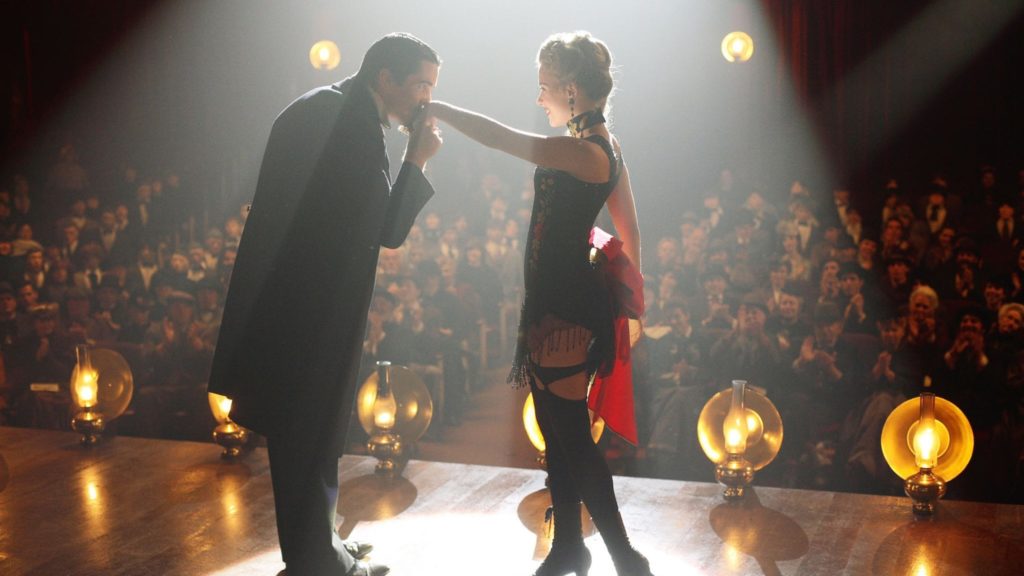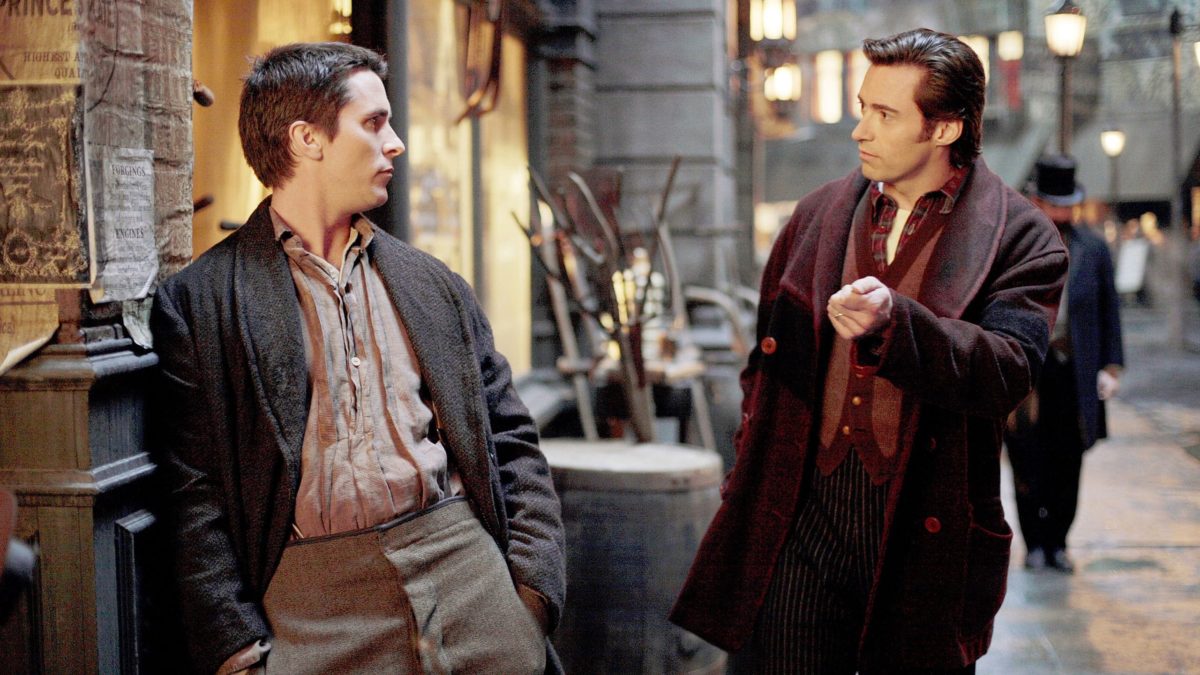Christopher Nolan is not the type of filmmaker to make directly introspective works. His films are plot machines, theme factories, set piece engines. They are skyscrapers, huge and gleaming. But even skyscrapers have an architect who poured their soul into the design, and so several Nolan films can feel personal despite their grand cinematic ambitions.
The Prestige is the story of two competing magicians who sacrifice themselves in different, but mirrored ways. Both are obsessed creators who can only achieve their vision by conquering the impossible. Both find a way, but only at great loss of the self. Through this, Nolan pays scathing tribute to his perfectionist muse: What he creates costs him his soul, but the result is true magic. In many ways, it’s Nolan’s Mulholland Drive: part angry screed against the soul-sucking Hollywood machine; part recognition of its all-consuming power. In short, there will never be a more self-reflective film in Nolan’s canon than The Prestige.

Above all other concerns, The Prestige is a terrific and gripping piece of storytelling, though. Through a fractured timeline we see Robert Angier (Hugh Jackman) and Alfred Borden (Christian Bale) become nemeses after Borden screws up a magic trick that results in the death of Angier’s wife. They each develop tricks the other cannot decode; each finds success but devastating personal loss.
The film opens near the end of the nonlinear timeline with the death of Angier, plunging into a tank and drowning, with Borden taking the blame for the murder despite apparently having nothing to do with it. And thus Borden is sentenced to death; the escalating feud reaching its apex: a death traded for a death. The movie then hops back in time to show us how we got there.
This framing device sets up a terrific series of connected dualities between the two magicians: Failures and successes and fixations that all provide breadcrumbs for one of the most narratively satisfying conclusions to any film you’ll ever watch. It’s the best possible version of a puzzle box story — the clues really were right in front of us and really do point to paradigm-shifting surprises. Almost like a magic trick! To quote my good friend and podcast co-host Brian who declared it his #3 favorite movie of all time back in 2013:
The first time I saw this movie, I immediately wanted to watch it again as soon as it ended – a feeling I’ve never experienced with any other film. And indeed, The Prestige rewards repeated viewings. Every time you watch it, you catch on to more and more hints dropped throughout the film, pointing toward the key secrets behind Angier and Borden’s charade.
Perhaps strangest and most poignant of all is that Borden and Angier, despite the film opening with their deaths, both ultimately achieve their own kind of immortality as they each invent “the perfect trick” as a result of their tireless work — but, for each, it comes at a cost they do not willingly pay. I believe this is what Nolan sees when he looks in the mirror: A creator who lost some of himself, but made art that will be cherished forevermore. His own story ties to Borden and Angier in different ways, both heroic and villainous, both self-destructive as they search for the soul in their art.

There’s a lot to love in The Prestige. In addition to the self-destructive creator concept, some smaller themes get dissection, like the intersection between science and entertainment, and acts of deception as expressions of love, and a handful of others. It’s a rich film, as thoughtful as it is entertaining.
With the loaded cast it has (Bale, Jackman, Michael Caine, Scarlett Johansson, and more), it’s little surprise that the acting is fantastic. Bale in particular channels a hungry artist willing to stop at nothing to climb the summit. Jackman and Caine are moreso playing themselves, but well, while Johansson doesn’t leave a huge impression relative to some of her other performances
The Prestige is an easy to film to look at, too: As with all Nolan works, the production is superior, with some great steampunk-esque period details and a tactile representation of 1890s London. In fact, that might be the secret ingredient that makes the whole thing work: the immersive, cobbled-together, gaslamp-lit Victorian look by production designer Nathan Crowley and cinematographer Wally Pfister, two regular Nolan collaborators.
I ultimately rank The Prestige just a hair below The Dark Knight among Nolan’s filmography in part because I think Nolan does operatic myth-building better than introspection; as personal a piece as this is, I would never go so far as to call it an intimate film. In other directorial hands, some smallness and quietness could have deepened the film’s emotional impact. But Nolan, as mentioned, is a skyscraper architect; smallness is not in his toolkit.
The Prestige is pretty damn close to a masterpiece, a sublime story that rewards careful observation. “Are you watching closely?”
- Review Series: Top 100 (2009 List)
- Review Series: Christopher Nolan
Is It Good?
Exceptionally Good (7/8)
Dan is the founder and head critic of The Goods. Follow Dan on Letterboxd. Join the Discord for updates and discussion.

